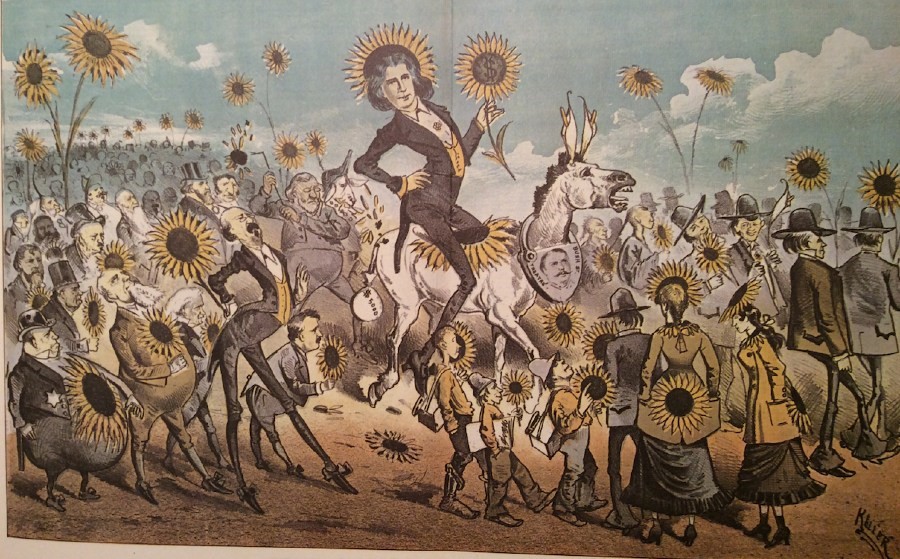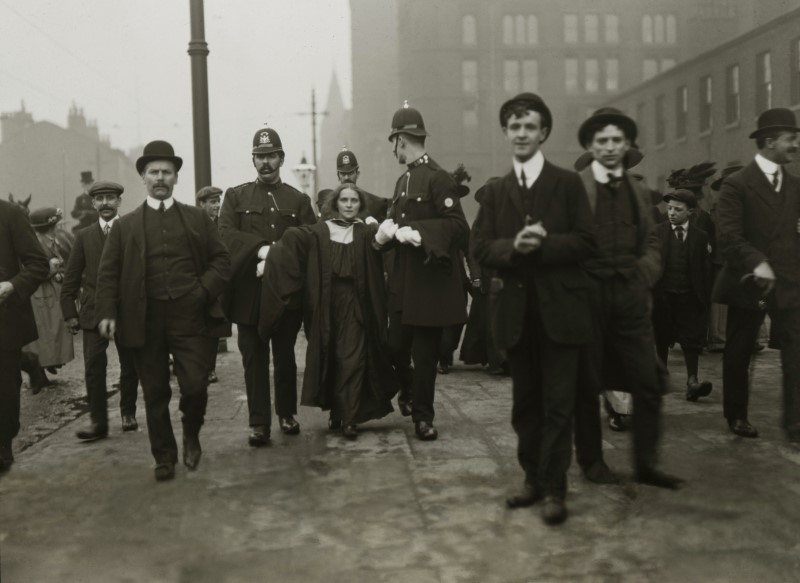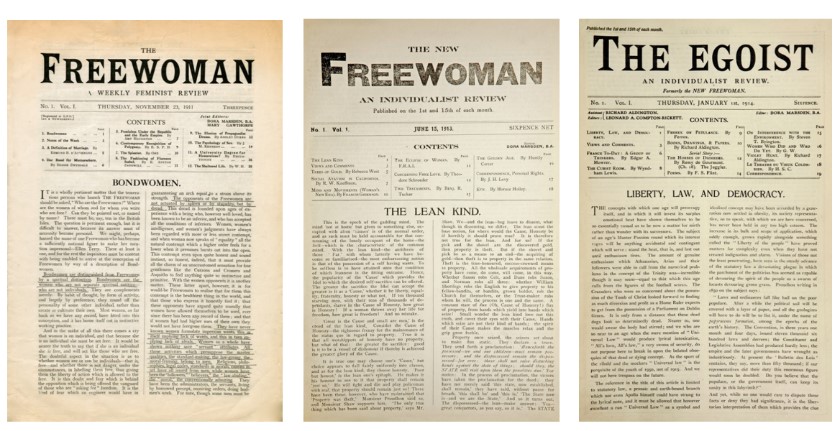Poppy Waring took the ‘Philosophical Britain‘ module at Queen Mary in 2016. In this post she writes about ‘egoism’ as a philosophical keyword.
Egoism is hardly a word that you’re likely to come across in your day to day life. In fact, I’d happily put bets on some high percentage of people having no definition to hand. Despite this, it’s also not exactly hard to grasp roughly what it discusses. ‘Ego’ is the self. As egoism stems off from this word, it encapsulates all philosophies linked to self-interest. These days it has also become linked to hedonism (as the press release for the egoistmobile ‘The Egoist’ tells us), probably due the worlds continued confusion between words that only have a few letters difference between them.
Something which became clear when I started my research for this blog was that there is a LOT of confusion regarding the differences between egoism and egotism. So, to clarify, here’s the differences:
- The definition, according to the Oxford English Dictionary of egotist is ‘The obtrusive or too frequent use of the pronoun of the first person singular: hence the practice of talking about oneself or one’s doings.’
- So egoism is more abstract and a course of actions, where as egotism require an personal involvement to be discussed.
- Egoism is self-interest, where as egotism is self-obsession.
In the present day, we are probably far more familiar with the term egotism since it so often seems to come up when talking about celebrity culture. So in present day popular culture, Kanye West, is the prime example of egotism – his self professed love of his self, and placing of himself as the most important person alive right now could be the distilled essence of egotism. Yet I suppose if he’s acting like this purely to get exposure, there is an argument that his actions are egoistic… Probably best to avoid dwelling on that for now though…
https://twitter.com/kanyewest/status/702561799816790016
One of the earliest examples of egoism in writing can be found in the works of Hobbes. In Leviathan, he states that ‘No man giveth but with intention of good to himself; because gift is voluntary; and of all voluntary acts the object to every man is his own pleasure’. It is this that would shape psychological egoism, countering the common hailing of altruism by religion. Skipping ahead, Max Stirner would advance the discussion of egoism away from purely psychological egoism and ethical egoism, going on to become one of the most influential writers on the subject. His exploration of the concepts found in ‘The Ego and His Own’, would bring egoism into then modern concepts, such as anarchism, libertarianism and individualism.
If you allow me to make a rather sweeping tour of the philosophical writings on egoism, one also can’t ignore the impact of Nietzches writing. It would shape the writing of most after him on the subject, whilst due to the notoriety of his linking with the ideologies of Nazism. It also would be where Marx and Engel would find a source of critism from which to build their own theories of Marxism/communism. Nietzche, argues that at our hearts we all follow egoism, but does not believe this is a bad thing – in true Neitzsche style he remains pretty silent on the moral implications on this, purely attempting to understand the way the world works.

Egoism started to appear in popular culture. Some of the key British thinkers, writers and artist of the period, the Bloomsbury group, which would carry through in to the Edwardian era. Writers such as Erza Ound, Richard Adlington and T.S. Eliot would champion the self. Many of these ideas would be published, either in their own books or in Dora Marsdens influencial publication ‘The Egoist’. Whilst ‘The Egoist’ was an intellectual magazine, written for the educated middle classes, it also was published as all modern magazines would be. Unlike journals, it also contained advertising, and readers could write in to express their thoughts on articles from previous issues.
The objective of the Women Movement being the development of the individual Ego… it appeals to the spirit of woman – Dora Marsden
Dora Marsden’s publications would go on to shape the progression of the feminist movement. Marsden played a large role in progressing feminism on from suffragettes, who were relatively altruistic in their actions and arguments. From around 1912 onwards, as the Freewoman became the New Freewoman, and the New Freedwoman became the Egoist, Dora Marsden moved away from the suffragette moment, towards a feminism which has far more similarities with todays feminism than the so called first wave. Other writers from this era, such as Virginia Wolfe would also find a sense of their self in the principles of egoism and feminism. In the footsteps of Marsden, as an egoist philosophy. The writer Rose Young would later describe feminism as concerning individualistic self development – crucial meaning that egoism in the realm of empowerment is not inherently selfish. Women for centuries have been expected to be altruistic, caring for their families at the expense of being able to explore their own identities and capabilities. Whilst men have been taught to always be egoistic firstly, and to strive towards altruism, women have always been expected to already be altruistic, and so egoism is a revelation to women allowing for self discovery and empowerment.

Whilst egoism fell out of popular favour throughout the war period, there were still a handful of writers who would carry to baton on from earlier writers such as Nietzsche and Stirner, developing their theories on egoism. Perhaps the most influential of these was Ayn Rand. In her work, The Virtue of Selfishness she makes the case for selfishness, reminding us that we inherently fear the criticism as we are told it is a negative trait. Whilst in popular culture, the rise of socialism, free love and hippie culture in the 60s would suggest the continuing trend away from egoism. Yet if we actually take a close examination of the protests we find that actually pretty much all of them actually have self interest at their hearts. The most obvious example of this would be the movement of sexual liberation, and as previously stated the feminist movement as was concerned with allowing women to be as egoist as men had been allowed to be for centuries. Even outside of this though, the anti-war protests, were often about preventing the self being sent to war as their more altruistic parents and grandparents had been. There is probably an argument for many social protests since the 60s being more egoistic than we would like to imagine – from the miners strikes, to the marchs of students for free education.
Rands work, outside of her own fiction writing such as The Fountainhead and Atlas Shrugged, would go on to influence those in many other unlikely fields, which would lead to her understanding of egoism permeating the public psyche even to the present day. For instance it is said that the comic book writers Steve Dikto and Frank Miller of Spiderman and Batman fame accordingly found some inspiration for the nature of their heroes in Rands writing. And with the continued popularity of comic book adaptions and the ‘antihero’, I think it would be fair to say that the idea of the self-serving anti-hero is pretty big in the present. I’ve been told that Deadpool is a pretty Randian (anti)hero…

And so we return to the present day. Whilst you might not see ‘EGOISM’ in flashing lights anywhere, it remains a constant in oour understanding of actions. In psychology, we continue to analyse whether we do anything for truly altruistic purposes. Just as the self remains a continuing obsession, we continue to live in an egoistic society. With the continued championing of ‘follow our dreams’, it seems pretty logical that This asides, what is clear, is that in todays society, where capitalism reigns supreme unchallenged, egoism is just another fact of life, and therefore has fallen out of common discourse.
Bibliography
Books
Lucy Delap, The Feminist Avant-Garde: Transatlantic Encounters of the Early Twentieth Century
Mark s. Morrisson, The Public Face Of Modernism: Little Magazones, Audiences, and Reception
Eleanor M. Sickels, The Gloomy Egoist: Moods and Themese of Melancholy from Gray to Keats, (New York, Octagon Books, 1969)
(ed) Peter Singer, Ethics, (Oxford: Oxford University Press, 1994)
Journals
David Ashford, ‘A New Concept of Egoism:The Late Modernism of Ayn Rand‘, Modernism/modernity, Volume 21, Number 4, November 2014,
Michael Slote, ‘Egoism and Emotion‘, Philosophia, June 2013, Volume 41, Issue 2, pp 313-335
Websites
Internet Encyclopaedia of Philosophy




